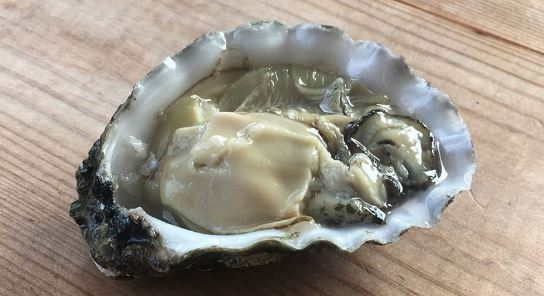Oyster is considered as a delicacy because it is not the kind of food consumed on a daily basis in most parts of the world.
The seafood comes in different sizes. It tastes salty, sweet, buttery, and metallic and can feel soft but firm, chewy and gooey.
Here are seven health benefits of eating oyster.
Aphrodisiac
Oyster contains more than 1500 percent of the daily requirements of zinc in a single serving.
Zinc has been closely linked to sexual dysfunction in men, while impotence and erectile dysfunction are closely associated with zinc deficiency.
As an aphrodisiac, oysters can help boost sexual performance and libido, primarily in men.
Eating them can give men their sexual edge back and increase feelings of masculinity.
Weight loss
Oyster represents one of the most nutrient-packed foods with the lowest calories versus the volume of serving size.
This means that people trying to lose weight can keep their body packed with the nutrients it needs.
Protein
Protein is an essential part of our diet, and a single serving of oyster provides nearly 1/3 of the daily requirement.
Protein ensures proper metabolic activity, tissue repair, cellular growth, muscle strength, and a wide variety of necessary aspects of human health.
Protect heart health
Oysters provide omega-3 fatty acids, also known as “good” cholesterol.
They can reduce the content of bad cholesterol in the bloodstream and stop it from binding to the blood vessels and artery walls.
Therefore, the chances of plaque accumulation are minimised as well as a variety of health complications, including cardiovascular diseases.
The high potassium and magnesium content of oyster also help lower blood pressure and relax the blood vessels, thereby increasing circulation and oxygenation of the blood and reducing strain on the cardiovascular system as a whole.
Speed up healing
The unprecedented levels of zinc in oyster result in a number of health benefits, including quicker wound healing rates and a boosted immune system against various infections and microbes.
Aids blood circulation
Oyster is a good source of iron, with more than 90 percent of our daily requirements in each serving.
Iron is a key component in the formation of red blood cells in the body and is the primary defence against anaemia, also known as iron deficiency, which can lead to fatigue, cognitive malfunction, stomach disorders, and general muscle weakness.
Bone health
The high level of calcium, phosphorus, zinc, iron, copper, and selenium in oyster contribute to increasing the bone mineral density and durability, thereby protecting you from developing conditions like osteoporosis.
Copyright 2025 TheCable. All rights reserved. This material, and other digital content on this website, may not be reproduced, published, broadcast, rewritten or redistributed in whole or in part without prior express written permission from TheCable.
Follow us on twitter @Thecablestyle


I adore oysters!